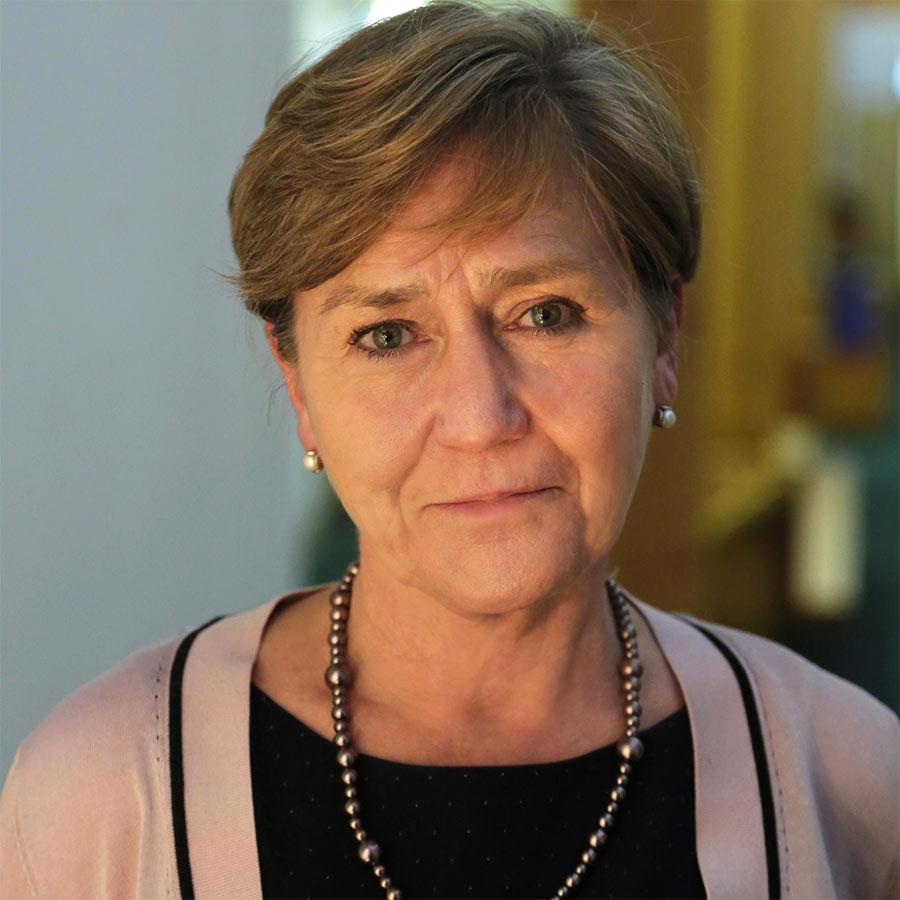
Authored by
DAME POLLY COURTICE DBE, LVO
Director,
University of Cambridge Institute for Sustainability Leadership (CISL)

EQUIPPING LEADERS FOR SUSTAINABILITY
Over almost three decades, CISL has worked with more than 8,000 business leaders and policymakers around the world, helping them to understand sustainability issues better, to ask challenging questions, and to explore what it takes to be part of the solution.
What is clear is that to make progress against the Sustainable Development Goals, leaders will need the skills and capabilities to build and lead cross-sectoral coalitions addressing complex systemic challenges. Our alumni represents a broad spectrum of organisations – from major multinational corporations and government agencies, to post graduate students and small single-purpose not-for-profits.
One of the most rewarding and fruitful aspects of our courses is the level of dialogue, mutual respect and cooperation we see in the cohorts during our teaching programmes. That, more than anything else, gives me hope for the future. But more needs to be done to equip leaders for the types of partnerships that will be required in the future.
A BUSINESS PLAN FOR THE SDGs
In our Rewiring the Economy report, we set out a ten-point plan that government, the financial sector and businesses need to adopt to embed sustainability principles into our economic model and to move us towards the achievement of the Sustainable Development Goals. The plan focuses on creating the enabling conditions for sustainable business that will encourage capital to flow into new business models on the basis of superior risk and return.
The plan’s vision is to tilt the playing field for business such that, over time, the economy generates positive outcomes for people within safe environmental limits. We believe this is an opportunity for business, government and finance leaders to work together on a common and jointly beneficial agenda. The journey ahead will require not only increased levels of ambition but also new forms of collaboration and radical innovation to escape the thinking that has been holding us back.
Rewiring the Economy is a catalyst for change, requiring extensive and diverse collaboration over the next decade to achieve its aims. But the challenges are such that we will need to revisit our very notions of effective leadership. We will need to design new models for leading cross functional and cross sectoral coalitions, to identify and build common ground and to pool resources and capabilities in order to achieve joint economic and societal goals, as we set out in our recent sister report, Rewiring Leadership.
TEN TASKS TO REWIRE THE ECONOMY
TASK 1: Measure the right things
TASK 2: Align incentives to support better outcomes
TASK 3: Drive socially useful innovation
TASK 4: Ensure capital acts for the long term
TASK 5: Price capital according to the true costs of business activities
TASK 6: Innovate financial structures to better serve sustainable business
TASK 7: Align organisational purpose, strategy and business models
TASK 8: Set evidence-based targets, measure and be transparent
TASK 9: Embed sustainability in practices and decisions
TASK 10: Engage, collaborate and advocate change
BUILDING COALITIONS FOR IMPACT: THE NEW LEADERSHIP PARADIGM
It is our view that businesses will need to lead the rewiring of the economy and not just adapt to it. In our report on Rewiring Leadership, informed by nearly 30 years of delivering sustainability leadership programmes for business and government leaders around the world, we have defined the changes that will be required for business leaders that want to be at the forefront. Such leaders will need to work in line with their values, their thinking and management practices and will need to:
1. Connect to collective values to unlock deeper levels of commitment
2. Build a sense of agency to lead the change
3. Surface world views and understand their implications
4. Develop insight into the broader societal context for business
5. Develop the mindset for leading change in complex systems
6. Build knowledge and skills in creating shared value
7. Nurture attitudes and practices that deliver system change
8. Develop skills to have impact at system level
9. Build personal confidence and resilience in taking action
BRIDGING THE LEADERSHIP GAP
Our research points to a significant leadership gap across global organisations in being able to take on the challenge of building the effective cross-sectoral coalitions that we will need.
Many senior leaders may have experience of forming partnerships with civil society organisations or with business schools and other academic institutions to address specific questions related to their social or environmental performance. Others may have already aligned donor funding or impact investment behind strategically important initiatives in their own value chain. Others may have championed industry specific pre-competitive initiatives.
But too often the most senior leaders of the organisation are out of touch with the new societal context for doing business. Very few will have acted on the need to draw down resources from more than one sector to address complex systemic challenges.

OUR EXPERIENCE WITH NESPRESSO
Over the years we have received some of Nespresso’s most senior managers at our training programmes in Cambridge. As a member of the Nespresso Sustainability Advisory Board – made up of NGOs, academics, business organisations and leadership team members of Nespresso and headed by the CEO – I have been impressed by the appetite of the company to take on some of these challenges.
Nespresso has learned that often you just need to get started and that not all initiatives will work immediately. But working with partners and organisations with very different perspectives and experiences to establish collaborative platforms and pilots can help identify the barriers to be overcome before proven solutions are scaled.
Article published in: April 2019

